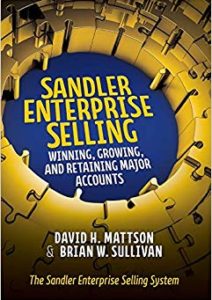A lofty goal, for sure. The first sale, of course, is great. But its real value is in its potential as it kicks off a relationship that can lead to continued business over the long term – streams of revenues and profits that fuel growth. But making the relationships sustainable requires focus, commitment and meaningful investments by both parties over time. Sounds a lot like personal relationships, doesn’t it?
Truthfully, if you think about it, what’s important in account relationships is the same as in relationships between people. For when two people bask in a relationship’s initial courtship, that romantic time is represented by both parties bringing their very best to their future partner, hoping to be viewed positively in every way. Similarly, in pursuing a prospect, sales teams work diligently to show responsiveness, attention to detail and follow-up in every transaction, hoping to enhance their reputation. In both situations, earning the right to move forward involves hard work. But it’s after the contract is signed and when the wedding day has ended that the real work begins.
I’ve consulted with many selling organizations on the topic of client retention and in so doing, I’ve reworked a quote about personal relationships into a selling version. “Account retention is not a noun. It’s a verb. It’s not what you get. It’s what you do”.
But, what is it that you do? What actions must you take to retain something you treasure so dearly, something you value greatly at the outset and plan to continue to do so over time? First, you must communicate clearly and constantly, making sure that along the way your care is evident. And you role model a spirit of mutual respect and common objectives, showing every day that you understand what is most important to your partner and that you’ll work hard to help them achieve their goals. And, of course, you adapt. You must. People and organizations change. It’s really the only thing you can count on. So, with major accounts, it’s mandatory that adapting be built on a baseline of being aware of where you stand. What’s more important is your ability to take action to improve where you stand in every area. For not acting to constantly improve, in both marriage and major account relationships, is a death knell. To paraphrase an anonymous quote, “Account relationships end because once you’ve won the account, you stop doing the things that it took to win them”. Let that sink in.
So, practically speaking, what can you do to increase the likelihood that your major accounts choose to stay with you over the long haul? Think about it. In serving major accounts, most selling organizations are built to react to new opportunities and to fix problems. Every hour, every day. Rinse, lather, repeat. Of course, reacting quickly to opportunities and problems is very important. But major accounts are marketplaces in and of themselves, ecosystems demanding much more than rapid response. Your real-time understanding of what matters most to them is vital to the relationship. And applying that knowledge to the areas of account retention is an absolute survival skill. If you’re not tracking your performance in those areas, constantly gathering information and taking visible actions to improve, your partnerships will be doomed.
What are the critical areas that will have the greatest impact on account retention? Let’s look at fourteen that, in large part, dictate whether your clients stay or go. Sure, there are others. And certainly, some are more important to some organizations than others. It’s your job to know which matter most to which accounts. Trust, though, that these fourteen matter greatly:
- Delivering Real Value
- Ease of Access and Contact
- Comprehensive Buyer Network Coverage
- High-Level Relationships
- Relevance in the Account – Going Deep and Wide
- Delivery of a Variety of Products/Services
- Wallet Share of Winnable Business
- Projected Account Revenue Growth
- Profitability Levels in the Account
- Delivery Track Record
- Understanding of the Account and its Industry
- Account Satisfaction Levels
- Trust Levels in the Relationship
- Account Dependence on You
A meaningful and impactful list, for sure. But how can you gauge your performance in the different areas? Start by assembling your account team in regular sessions to develop honest evaluations and ratings of your performance in each of the areas. If your team doesn’t know enough to come up with ratings in certain areas, that’s a big problem. To discover any missing information, use your network, your partners and your client contacts to help connect the dots. Truthfully, the questions you’ll ask them are easy to form and generally receive really informative feedback. Coming up short in terms of intelligence is unacceptable. Go find it. Once realistic ratings are developed for each area, the next step is the most important. As a team, you craft corresponding action items for each area to drive concrete improvement. Yes, even in areas where your ratings are positive. Improve, improve, improve. Always improve. There’s no other way.
An account relationship doesn’t end because time dictates that it must. It doesn’t have an expiration date. It ends because one of the partners makes a conscious choice to give it up, either by actions taken or actions neglected. Care deeply. Track your performance. Then insure that the improvement actions you take are highly visible to your accounts. Remember, they chose you as their partner for a reason. And they reconfirm that decision every single day. It’s your job to make sure they never question their judgment.












Comments